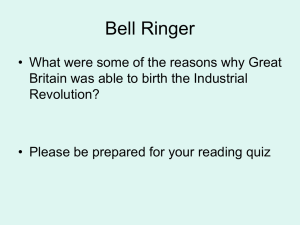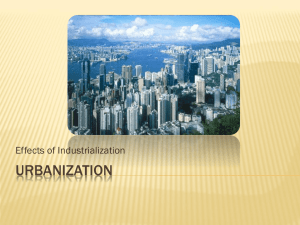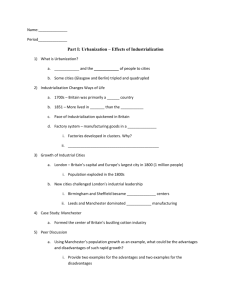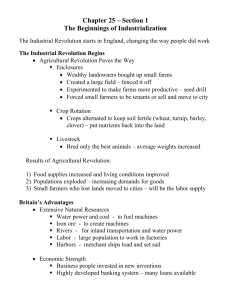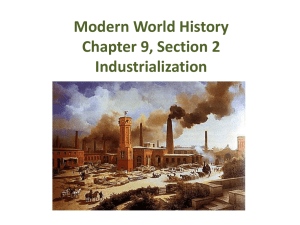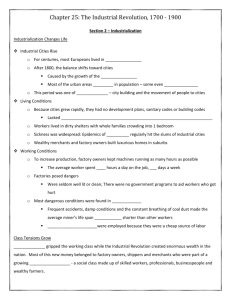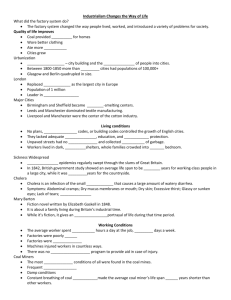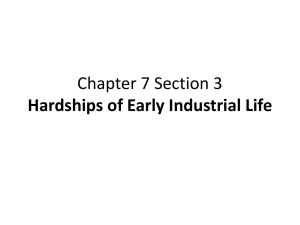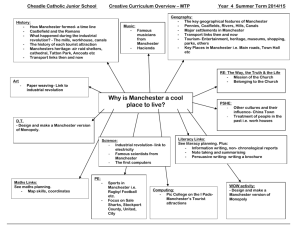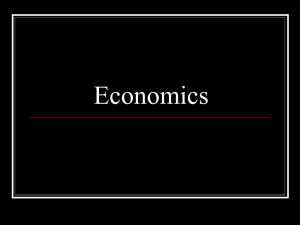25.2 Industrialization.ppt
advertisement
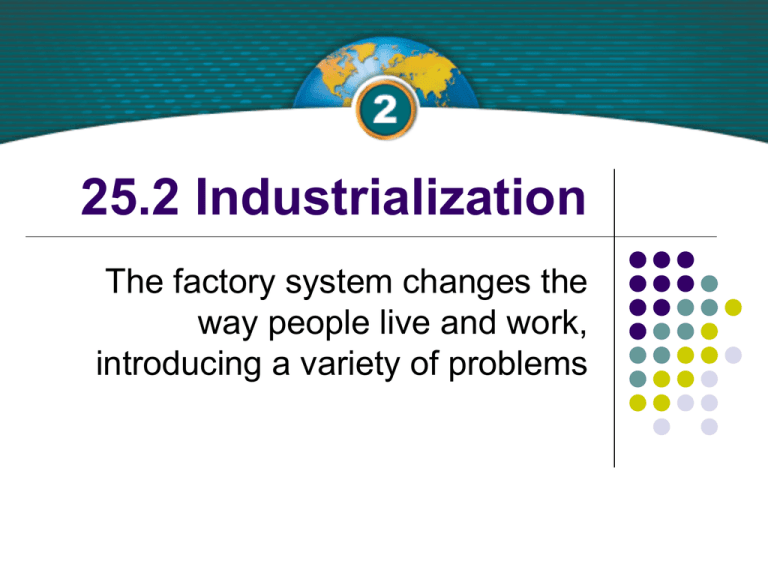
25.2 Industrialization The factory system changes the way people live and work, introducing a variety of problems Industrialization Changes Life Factory Work Factories pay more than farms, spur demand for more expensive goods Industrial Cities Rise Urbanization—city-building and movement of people to cities Growing population provides work force and a market for factory goods British industrial cities: London, Birmingham, Manchester, Liverpool Industrialization Changes Life Living Conditions Sickness widespread; epidemics, like cholera, sweep urban slums Life span in one large city is only 17 years Wealthy merchants, factory owners live in luxurious suburban homes Rapidly growing cities lack sanitary codes and building codes Cities also without adequate housing, education, and police protection Industrialization Changes Life Working Conditions Average working day is 14 hours for 6 days a week, year round Dirty, poorly lit factories injure workers Many coal miners killed by coal dust Class Tensions Grow The Middle Class Middle class—skilled workers, merchants, rich farmers, professionals Emerging middle class looked down on by landowners and aristocrats Middle class has comfortable standard of living Class Tensions Grow The Working Class Laborers’ lives not improved; some laborers replaced by machines Luddites and other groups destroy machinery that puts them out of work Unemployment is a serious problem; unemployed workers riot Positive Effects of the Industrial Revolution Immediate Benefits Creates jobs, enriches nation, encourages technological progress Education expands, clothing cheaper, diet and housing improve Workers eventually win shorter hours, better wages and conditions Long-Term Effects Improved living and working conditions still evident today Governments use increased tax revenues for urban developments Case Study: Manchester Children in Manchester Factories Children as young as 6 work in factories; many are injured 1819 Factory Act restricts working age, hours Factory pollution fouls air, poisons river Nonetheless, Manchester produces consumer goods and creates wealth Case Study: Manchester The Mills of Manchester Manchester has labor, water, power, nearby port at Liverpool. Poor live and work in unhealthy, even dangerous environment Business owners make profits by risking their own money on factories Eventually, working class sees its standard of living rise some
